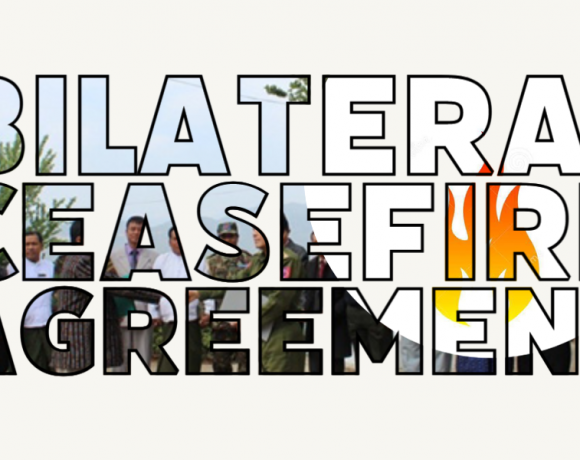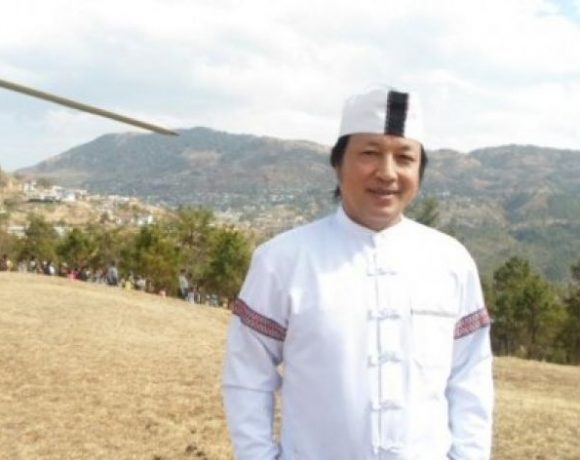Bottom Line: Rights Conditions Unlikely to Improve Post-Elections
The United Nations rights expert is due to visit Burma for the third time later this month since assuming his position in May 2008. Tomas Ojea Quintana, a lawyer from Argentina, is the fourth rights envoy to be appointed by the United Nations to investigate allegations of human rights violations in Burma. Only a handful of countries in the world that face the most serious allegations, have a human rights investigator appointed by the world body.
One of Mr. Quintana’s three predecessors Mr. Rajsoomer Lallah resigned in frustration at the lack of human rights progress in Burma in 2000 after having served for four years as the UN rights investigator. The Mauritian lawyer who was denied entry to Burma several times said, “We are faced with a country at war with its own people.”
In his last report to the UN Human Rights Council in March 2008 before leaving his position, Mr. Paulo Sergio Pinheiro, the Brazilian international rights expert likened the Burmese regime’s commitment to human rights and democratic reform with a fairy tale. He told a panel of the world’s highest rights body, “If you believe in gnomes, trolls and elves, you can believe in this democratic process [in Burma].”
Before his first visit to Burma in August 2008 as newly appointed UN rights envoy, Mr. Quintana was initially upbeat about possible progress in the areas of human rights “Hoping to engage in a constructive dialogue [with Burmese authorities] to improve human rights.”
It was not to be so.
After 17 years since a UN human rights expert was assigned to Burma, we are back at square one. Mr. Quintana recently told the United Nations General Assembly of an ongoing “alarming patterns of widespread and systematic violations [of human rights].”
Mr. Quintana is set to make another trip to Burma later this month, possibly in the last week.
But it is important to note that the recommendations he made during his last trip to Burma has not been positively responded to by the ruling military regime. And those recommendations included the fundamental questions of institutional reforms needed to effectively address human rights.
The UN rights envoy specifically emphasized the need to fundamentally reform the armed forces and the judiciary. Unfortunately, this is not likely to take place any time soon or in the post election period under the new constitution backed by the military.
As the UN rights expert pointed out in his latest report, the people of Burma will not enjoy their human rights without addressing the institutional aspect of the problems.
The military-backed constitution is already fraught with recipes for continued human rights violations and provides for an entrenched atmosphere of impunity for perpetrators of human rights. And without affecting institutional reforms, the protection of human rights in Burma will continue to remain a daunting challenge for many years ahead.
Some optimists view that under a new semi-civilian government, Burma will inevitably gradually loosen its tight reign on freedom. It can even be cajoled into embracing some of the basic international rights instruments that guarantee fundamental human rights.
But the fact remains. Perpetrators of rights abuse who tend to be direct agents of the State, including members of the armed forces will continue to enjoy impunity, shielded from any kind of prosecution. This is because the State’s interests are so often closely tied to the kind of human rights violations that have been taking place across the country.
The issue of forced labor provides a classic example. It took more than a decade for the regime to even admit that the practice of forced labor existed. Nine years after the regime has supposedly outlawed the use of forced labor, the practice is still as widespread and commonplace as any other time in the last twenty years. And rarely had anyone been prosecuted for ordering the use of forced labor. Instead, civilians who report forced labor incidents have been routinely intimidated, harassed and punished.
It takes a serious political will to address human rights. Any measures to combat violations require the full backing of the system, accompanied by firm enforcement mechanisms being put in place. None of these is evident in the current scenario or the system provided by the military-backed constitution.
Human rights conditions are not likely to improve post-elections even under the best of scenarios. And that’s the bottom line.
For questions and comments please contact [email protected]






